
 With warmer weather now upon us, many children make a return to outdoor sports and activities. Many parents may eventually face the issue of their children experiencing heel pain. In adolescents, heel pain is often caused by Sever’s disease. Pain is typically described as being at the back of the heel; this is where the growth plate has not fully developed yet. Sever’s disease is thought to occur because of a mismatch in the growth of the heel bones to the calf muscle and Achilles tendon. Rest and pain relief are key parts of treatment.
With warmer weather now upon us, many children make a return to outdoor sports and activities. Many parents may eventually face the issue of their children experiencing heel pain. In adolescents, heel pain is often caused by Sever’s disease. Pain is typically described as being at the back of the heel; this is where the growth plate has not fully developed yet. Sever’s disease is thought to occur because of a mismatch in the growth of the heel bones to the calf muscle and Achilles tendon. Rest and pain relief are key parts of treatment.
Making sure that your children maintain good foot health is very important as they grow. If you have any questions, contact Dr. Steven Shlonsky of Louisville, Kentucky. Dr. Shlonsky can provide the care you need to keep you pain-free and on your feet.
Keeping Children's Feet Healthy
Having healthy feet during childhood can help prevent medical problems later in life, namely in the back and legs. As children grow, their feet require different types of care. Here are some things to consider...
Although babies do not walk yet, it is still very important to take care of their feet.
Avoid putting tight shoes or socks on his or her feet.
Allow the baby to stretch and kick his or her feet to feel comfortable.
As a toddler, kids are now on the move and begin to develop differently. At this age, toddlers are getting a feel for walking, so don’t be alarmed if your toddler is unsteady or ‘walks funny’.
As your child gets older, it is important to teach them how to take care of their feet.
Show them proper hygiene to prevent infections such as fungus.
Be watchful for any pain or injury.
Have all injuries checked by a doctor as soon as possible.
Comfortable, protective shoes should always be worn, especially at play.
If you have any questions please feel free to contact our office located in Louisville, KY . We offer the newest diagnostic and treatment technologies for all your foot and ankle needs.
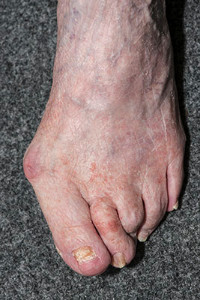 Regardless of the season, bunions and the pain associated with them plague athletes of all fields. Skiers, hockey players, basketball players, and other athletes involved in running sports are all susceptible to developing the condition. A bunion is characterized as a painful swelling of soft tissue and bone enlargement over the inner side of the ball of the big toe joint. With progression, the condition can become arthritic and may be accompanied by pain and the inability to wear shoes and walk comfortably. Treatment for bunions depends on the severity of the condition. In many cases, orthotics and wider fitting shoes can help, whereas more severe cases may call for surgery.
Regardless of the season, bunions and the pain associated with them plague athletes of all fields. Skiers, hockey players, basketball players, and other athletes involved in running sports are all susceptible to developing the condition. A bunion is characterized as a painful swelling of soft tissue and bone enlargement over the inner side of the ball of the big toe joint. With progression, the condition can become arthritic and may be accompanied by pain and the inability to wear shoes and walk comfortably. Treatment for bunions depends on the severity of the condition. In many cases, orthotics and wider fitting shoes can help, whereas more severe cases may call for surgery.
If you are suffering from bunions, contact Dr. Steven Shlonsky of Louisville, Kentucky. Dr. Shlonsky can provide the care you need to keep you pain-free and on your feet.
What Is a Bunion?
A bunion is formed of swollen tissue or an enlargement of boney growth, usually located at the base joint of the toe that connects to the foot. The swelling occurs due to the bones in the big toe shifting inward, which impacts the other toes of the foot. This causes the area around the base of the big toe to become inflamed and painful.
Why Do Bunions Form?
Genetics – Susceptibility to bunions are often hereditary
Stress on the feet – Poorly fitted and uncomfortable footwear that places stress on feet, such as heels, can worsen existing bunions
How Are Bunions Diagnosed?
Doctors often perform two tests – blood tests and x-rays – when trying to diagnose bunions, especially in the early stages of development. Blood tests help determine if the foot pain is being caused by something else, such as arthritis, while x-rays provide a clear picture of your bone structure to your doctor.
How Are Bunions Treated?
If you have any questions, please feel free to contact our office located in Louisville, KY . We offer the newest diagnostic and treatment technologies for all your foot care needs.
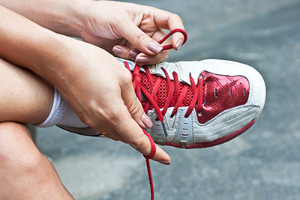 Whether or not your shoes fit properly could be the difference between having healthy feet and having to walk around in pain. There are around 100 different working parts in your feet with 25% of all the bones of your skeleton residing inside your slippers. That being said, it is no wonder that wearing good quality, well-fitted shoes is extremely important for good foot and overall health. There are a few tips to follow when you are shoe-shopping: make sure to get your feet measured (they change size over time!), walk around the shoe store a bit with your new pair on, and buy activity appropriate footwear. This last point is especially important for running. Just because you’re not jogging in high heels doesn’t mean you’re wearing the right shoes.
Whether or not your shoes fit properly could be the difference between having healthy feet and having to walk around in pain. There are around 100 different working parts in your feet with 25% of all the bones of your skeleton residing inside your slippers. That being said, it is no wonder that wearing good quality, well-fitted shoes is extremely important for good foot and overall health. There are a few tips to follow when you are shoe-shopping: make sure to get your feet measured (they change size over time!), walk around the shoe store a bit with your new pair on, and buy activity appropriate footwear. This last point is especially important for running. Just because you’re not jogging in high heels doesn’t mean you’re wearing the right shoes.
Finding a properly-fitting shoe is important in reducing injuries and preventing foot problems. For more information about treatment, contact Dr. Steven Shlonsky from Louisville, Kentucky. Dr. Shlonsky will treat your foot and ankle needs.
Proper Shoe Fitting
A common concern when it comes to foot health, having properly fitted shoes can help prevent injuries to the foot. Out feet affect our posture and gait, which in turn affects the biomechanics and overall bodily structure. With 33 joints, 26 bones, and over 100 ligaments, the potential for serious injury is much greater than one realizes. Although the feet cease growth in adulthood, they still change shape as they mature. Here are some factors to consider when it comes to investing in proper fitting shoes:
Keeping in mind how shoes fit the biomechanics of your body, properly-fitting shoes are vitally important. Fortunately, it is not difficult to acquire footwear that fits correctly. Be sure to wear shoes that support the overall structure of your body. Do your feet a favor and invest in several pairs of well-fitted shoes today.
If you have any questions please feel free to contact our office located in Louisville, KY . We offer the newest diagnostic and treatment technologies for all your foot and ankle needs.
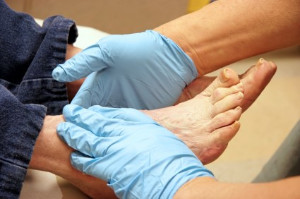 For people who live with diabetes, footcare should be high on the list of concerns related to overall health. Due to constricted blood flow or nerve damage, diabetics need to take extra care to avoid potential foot and leg injuries. Walking barefoot is not typically a good idea, as you may not feel it when you step on something sharp. Proper inspection is also very important. Be sure to check your legs and feet for any kind of sores or lesions. Gone unnoticed or untreated, these wounds can quickly become infected and lead to very serious consequences like amputation. Along with daily personal inspection, make sure you have your feet checked often by a podiatrist.
For people who live with diabetes, footcare should be high on the list of concerns related to overall health. Due to constricted blood flow or nerve damage, diabetics need to take extra care to avoid potential foot and leg injuries. Walking barefoot is not typically a good idea, as you may not feel it when you step on something sharp. Proper inspection is also very important. Be sure to check your legs and feet for any kind of sores or lesions. Gone unnoticed or untreated, these wounds can quickly become infected and lead to very serious consequences like amputation. Along with daily personal inspection, make sure you have your feet checked often by a podiatrist.
Diabetic foot care is important in preventing foot ailments such as ulcers. If you are suffering from diabetes or have any other concerns about your feet, contact Dr. Steven Shlonsky from Louisville, Kentucky. Dr. Shlonsky can provide the care you need to keep you pain-free and on your feet.
Diabetic Foot Care
Diabetes affects millions of people every year. The condition can damage blood vessels in many parts of the body, especially the feet. Because of this, taking care of your feet is essential if you have diabetes, and having a podiatrist help monitor your foot health is highly recommended.
The Importance of Caring for Your Feet
Patients with diabetes should have their doctor monitor their blood levels, as blood sugar levels play such a huge role in diabetic care. Monitoring these levels on a regular basis is highly advised.
It is always best to inform your healthcare professional of any concerns you may have regarding your feet, especially for diabetic patients. Early treatment and routine foot examinations are keys to maintaining proper health, especially because severe complications can arise if proper treatment is not applied.
If you have any questions please feel free to contact our office located in Louisville, KY . We offer the newest diagnostic and treatment technologies for all your foot and ankle needs.
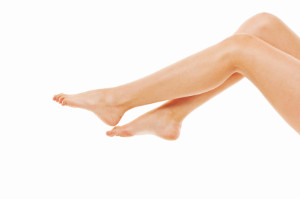 If you have ever experienced an ingrown toenail, you know how painful and how much of a hindrance it can be. It occurs when part of the toenail grows into the tissue of the toe. This can turn into a serious condition, as swelling and infection may result. Medically known as onychocryptosis, this disorder is typically caused by over clipping of toenails or wearing shoes that do not fit properly. With nearly 3 million cases of patients with ingrown toenails, it is important to contact your podiatrist to learn about proper treatment.
If you have ever experienced an ingrown toenail, you know how painful and how much of a hindrance it can be. It occurs when part of the toenail grows into the tissue of the toe. This can turn into a serious condition, as swelling and infection may result. Medically known as onychocryptosis, this disorder is typically caused by over clipping of toenails or wearing shoes that do not fit properly. With nearly 3 million cases of patients with ingrown toenails, it is important to contact your podiatrist to learn about proper treatment.
Ingrown toenails can become painful if they are not treated properly. For more information about ingrown toenails, contact Dr. Steven Shlonsky of Louisville, Kentucky. Dr. Shlonsky can provide the care you need to keep you pain-free and on your feet.
Ingrown Toenails
Ingrown toenails occur when a toenail grows sideways into the bed of the nail, causing pain, swelling, and possibly infection.
Causes
Prevention
Because ingrown toenails are not something found outside of shoe-wearing cultures, going barefoot as often as possible will decrease the likeliness of developing ingrown toenails. Wearing proper fitting shoes and using proper cutting techniques will also help decrease your risk of developing ingrown toenails.
Treatment
Ingrown toenails are a very treatable foot condition. In minor cases, soaking the affected area in salt or antibacterial soaps will not only help with the ingrown nail itself, but also help prevent any infections from occurring. In more severe cases, surgery is an option. In either case, speaking to your podiatrist about this condition will help you get a better understanding of specific treatment options that are right for you.
If you have any questions please feel free to contact our office located in Louisville, KY . We offer the newest diagnostic and treatment technologies for all your foot and ankle needs.
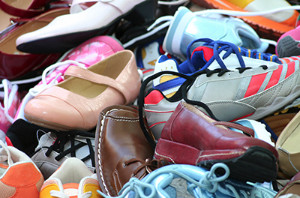 Shopping for shoes can often be a tricky thing to do. Finding the right place to buy them is one of the first things to consider. Getting the shoes online would be convenient, but being able to try the shoes on is a must if you want to ensure that they fit properly. Make sure to measure your foot. Depending on where you are, you can usually find a sales associate to help you with this. Your shoe size can vary for a number of reasons. As the day wears on our feet typically swell a bit. And, as we age, our feet may expand. Also, a shoe size that one brand sells may be different from the exact same size offered by another. Once you have the shoes on, walk around the store a little bit. If they aren’t comfortable, it would be better to just find another pair. If you’re wondering why your feet hurt, it could be that you’re wearing the wrong size shoes.
Shopping for shoes can often be a tricky thing to do. Finding the right place to buy them is one of the first things to consider. Getting the shoes online would be convenient, but being able to try the shoes on is a must if you want to ensure that they fit properly. Make sure to measure your foot. Depending on where you are, you can usually find a sales associate to help you with this. Your shoe size can vary for a number of reasons. As the day wears on our feet typically swell a bit. And, as we age, our feet may expand. Also, a shoe size that one brand sells may be different from the exact same size offered by another. Once you have the shoes on, walk around the store a little bit. If they aren’t comfortable, it would be better to just find another pair. If you’re wondering why your feet hurt, it could be that you’re wearing the wrong size shoes.
Getting the right shoe size is an important part of proper foot health. Seek the assistance of Dr. Steven Shlonsky from Louisville, Kentucky. Dr. Shlonsky will provide the care you need to keep you pain-free and on your feet.
Getting the Right Shoe Size
There are many people who wear shoes that are the incorrect size, negatively affecting their feet and posture. Selecting the right shoes is not a difficult process, so long as you keep several things in mind when it comes to choosing the right pair.
As our feet hold our body weight and keep us moving, it is important to treat them right. Picking the right pair of shoes can provide your feet comfort and mobility without pain.
If you have any questions, please feel free to contact our office located in Louisville, KY . We offer the newest diagnostic and treatment technologies for all your foot care needs.
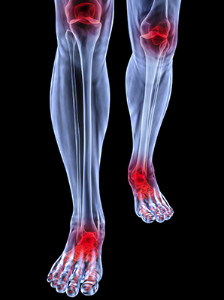 Arthritis is a very common disease that can affect joints in areas all over the body. Arthritis of the feet can be especially painful and debilitating due to the constant weight put on that section of the body. For someone with arthritic feet, every step taken can be excruciating. There are many different types of arthritis, though inflammatory arthritis can be one of the most devastating. Rheumatoid arthritis is one such type, where the cartilage of the joints is being destroyed. Though there is really no set diet to cure this illness, there are some recommended foods that may prove effective in helping mitigate some of the arthritic symptoms. The key is to reduce inflammation. Certain foods that help do just that are nuts, fish, and, dark vegetables.
Arthritis is a very common disease that can affect joints in areas all over the body. Arthritis of the feet can be especially painful and debilitating due to the constant weight put on that section of the body. For someone with arthritic feet, every step taken can be excruciating. There are many different types of arthritis, though inflammatory arthritis can be one of the most devastating. Rheumatoid arthritis is one such type, where the cartilage of the joints is being destroyed. Though there is really no set diet to cure this illness, there are some recommended foods that may prove effective in helping mitigate some of the arthritic symptoms. The key is to reduce inflammation. Certain foods that help do just that are nuts, fish, and, dark vegetables.
Arthritis can be a difficult condition to live with. If you are seeking treatment, contact Dr. Steven Shlonsky from Louisville, Kentucky. Dr. Shlonsky can provide the care you need to keep you pain-free and on your feet.
Arthritic Foot Care
Arthritis is a joint disorder that involves the inflammation of different joints in your body, such as those in your feet. Arthritis is often caused by a degenerative joint disease and causes mild to severe pain in all affected areas. In addition to this, swelling and stiffness in the affected joints can also be a common symptom of arthritis.
In many cases, wearing ill-fitting shoes can worsen the effects and pain of arthritis. Wearing shoes that have a lower heel and extra room can help your feet feel more comfortable. In cases of rheumatoid arthritis, the arch in your foot may become problematic. Buying shoes with proper arch support that contour to your feet can help immensely.
Alleviating Arthritic Pain
It is best to see your doctor for the treatment that is right for your needs and symptoms. Conditions vary, and a podiatrist can help you determine the right method of care for your feet.
If you have any questions, please feel free to contact our office located in Louisville, KY . We offer the newest diagnostic tools and technology to treat your foot and ankle needs.
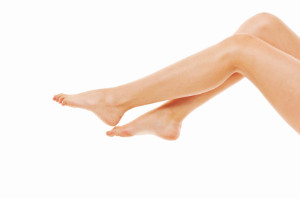 As the winter months are here, that means the weather is becoming colder, and as a result, your feet become susceptible to all sorts of maladies. Some tips for keeping your feet warm and avoiding any foot complications involve wearing properly-fitting, waterproof, snow-resistant shoes, breathable socks that prevent moisture from building up and practicing proper foot hygiene. Make sure to see your podiatrist if you notice any foot problems.
As the winter months are here, that means the weather is becoming colder, and as a result, your feet become susceptible to all sorts of maladies. Some tips for keeping your feet warm and avoiding any foot complications involve wearing properly-fitting, waterproof, snow-resistant shoes, breathable socks that prevent moisture from building up and practicing proper foot hygiene. Make sure to see your podiatrist if you notice any foot problems.
Everyday foot care is very important to prevent infection and other foot ailments. If you need your feet checked, contact Dr. Steven Shlonsky from Louisville, Kentucky. Dr. Shlonsky can provide the care you need to keep you pain-free and on your feet.
Everyday Foot Care
Often, people take care of their bodies, face and hair more so than they do for their feet. But the feet are a very important aspect of our bodies, and one that we should pay more attention to. Without our feet, we would not be able to perform most daily tasks.
It is best to check your feet regularly to make sure there are no new bruises or cuts that you may not have noticed before. For dry feet, moisturizer can easily be a remedy and can be applied as often as necessary to the affected areas. Wearing shoes that fit well can also help you maintain good foot health, as well as making it easier to walk and do daily activities without the stress or pain of ill-fitting shoes, high heels, or even flip flops. Wearing clean socks with closed shoes is important to ensure that sweat and bacteria do not accumulate within the shoe. Clean socks help to prevent Athlete’s foot, fungi problems, bad odors, and can absorb sweat.
If you have any questions please feel free to contact our office located in Louisville, KY . We offer the newest diagnostic and treatment technologies for all your foot and ankle needs.
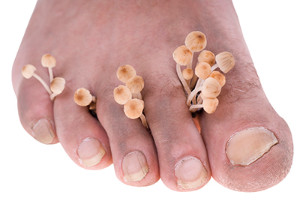 Anyone that has ever had athlete’s foot knows how much of a nuisance it is. It itches and itches and no amount of scratching will make it relent. The foot gets red, and pain can quickly ensue. Athlete’s foot is a fungus, and like most fungi, thrives in warm, moist environments. The gym is a perfect place for this fungus, so it is important to remember to wear sandals when showering after your workout. Keep your feet dry, make sure to clean them well, and change your socks daily. If your feet are prone to sweating you may have an increased risk of athlete’s foot, so double your efforts in this regard. If you do contract the disease, over the counter treatment options are available, and are quite effective.
Anyone that has ever had athlete’s foot knows how much of a nuisance it is. It itches and itches and no amount of scratching will make it relent. The foot gets red, and pain can quickly ensue. Athlete’s foot is a fungus, and like most fungi, thrives in warm, moist environments. The gym is a perfect place for this fungus, so it is important to remember to wear sandals when showering after your workout. Keep your feet dry, make sure to clean them well, and change your socks daily. If your feet are prone to sweating you may have an increased risk of athlete’s foot, so double your efforts in this regard. If you do contract the disease, over the counter treatment options are available, and are quite effective.
Athlete’s foot is an inconvenient condition that can be easily reduced with the proper treatment. If you have any concerns about your feet and ankles, contact Dr. Steven Shlonsky from Louisville, Kentucky. Dr. Shlonsky will treat your foot and ankle needs.
Athlete’s Foot: The Sole Story
Athlete's foot, also known as tinea pedis, can be an extremely contagious foot infection. It is commonly contracted in public changing areas and bathrooms, dormitory style living quarters, around locker rooms and public swimming pools, or anywhere your feet often come into contact with other people.
Solutions to Combat Athlete’s Foot
Athlete’s foot can cause many irritating symptoms such as dry and flaking skin, itching, and redness. Some more severe symptoms can include bleeding and cracked skin, intense itching and burning, and even pain when walking. In the worst cases, Athlete’s foot can cause blistering as well. Speak to your podiatrist for a better understanding of the different causes of Athlete’s foot, as well as help in determining which treatment options are best for you.
If you have any questions please feel free to contact our office located in Louisville, KY . We offer the newest diagnostic and treatment technologies for all your foot and ankle needs.
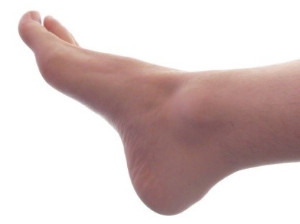 There are over 100 different varieties of HPV, or human papilloma virus. Nearly 12% of the global population have had warts at one time, and plantar warts are but one of these types. They all share one basic characteristic, they have the ability to infect skin cells. Many people, when they hear the term HPV, think that it refers to genital warts. But this is not the case, and HPV can manifest itself in many different forms. Plantar warts occur on the feet, typically on the palms or the soles. They can be flat or raised, and usually occur in dry, cracked areas of the foot. Treatments vary in scope and effectiveness. If you think you may have a plantar wart, talk to your podiatrist and go through the treatment options available.
There are over 100 different varieties of HPV, or human papilloma virus. Nearly 12% of the global population have had warts at one time, and plantar warts are but one of these types. They all share one basic characteristic, they have the ability to infect skin cells. Many people, when they hear the term HPV, think that it refers to genital warts. But this is not the case, and HPV can manifest itself in many different forms. Plantar warts occur on the feet, typically on the palms or the soles. They can be flat or raised, and usually occur in dry, cracked areas of the foot. Treatments vary in scope and effectiveness. If you think you may have a plantar wart, talk to your podiatrist and go through the treatment options available.
Plantar warts can be very uncomfortable. If you need your feet checked, contact Dr. Steven Shlonsky from Louisville, Kentucky. Dr. Shlonsky will assist you with all of your foot and ankle needs.
About Plantar Warts
Plantar warts are the result of HPV, or human papillomavirus, getting into open wounds on the feet. They are mostly found on the heels or balls of the feet.
While plantar warts are generally harmless, those experiencing excessive pain or those suffering from diabetes or a compromised immune system require immediate medical care. Plantar warts are easily diagnosed, usually through scraping off a bit of rough skin or by getting a biopsy.
Symptoms
Treatment
To help prevent developing plantar warts, avoid walking barefoot over abrasive surfaces that can cause cuts or wounds for HPV to get into. Avoiding direct contact with other warts, as well as not picking or rubbing existing warts, can help prevent the further spread of plantar warts. However, if you think you have developed plantar warts, speak to your podiatrist. He or she can diagnose the warts on your feet and recommend the appropriate treatment options.
If you have any questions please feel free to contact our office located in Louisville, KY . We offer the newest diagnostic and treatment technologies for all your foot and ankle needs.
Louisville Podiatry Office
149 Thierman Ln
Louisville,
KY 40207
Mon: 9:30 AM - 5:30 PM
Tues: 9:30 AM - 5:30 PM
Wed: 9:30 AM - 5:30 PM
Thur: 9:30 AM - 5:30 PM
Fri: 9:30 AM - 5:30 PM